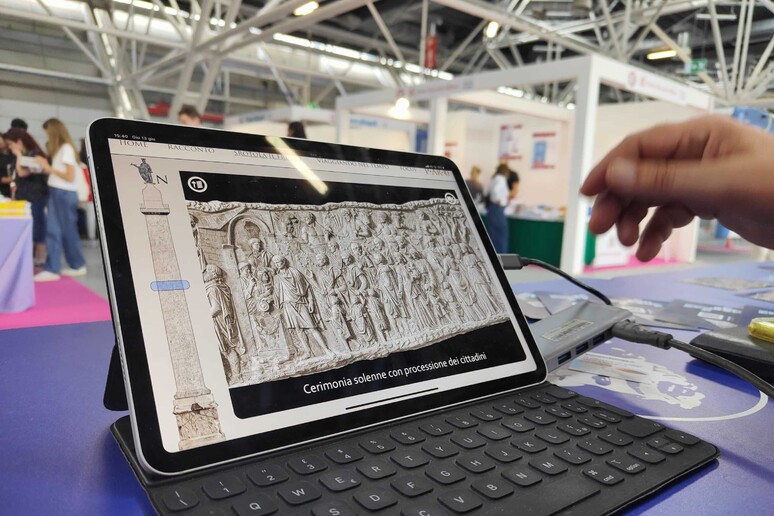The European Union, United States and
United Kingdom have signed the Council of Europe's convention on
artificial intelligence (AI).
The Council of Europe Framework Convention on artificial
intelligence and human rights, democracy, and the rule of law
was adopted by the Council of Europe Committee of Ministers on
17 May this year.
It is the first-ever international legally binding treaty aimed
at ensuring that the use of AI systems is fully consistent with
human rights, the rule of law and juridical standards of
democracy.
The convention was opened for signature on Thursday during a
conference of Council of Europe Ministers of Justice in Vilnius.
Among the first to sign, in addition to the EU, US and the
United Kingdom, were also Israel, Norway, Georgia, Moldova,
Iceland, Andorra and San Marino.
The Convention was the product of two years of work by an
intergovernmental body, the Committee on AI (CAI) which not only
gathered 46 Council of Europe member states, but also the EU, 11
non-member states (Argentina, Australia, Canada, Costa Rica, the
Holy See, Israel, Japan, Mexico, Peru, the United States of
America and Uruguay), representatives of the private sector,
civil society and academia. The text provides a juridical
framework which covers the entire lifecycle of AI systems,
promoting progress and innovation of artificial intelligence and
managing at the same time the risks for human rights, democracy
and the rule of law. In order for the Convention to come into
effect, it must be ratified by five signatories, of which at
least three Council of Europe member States. Countries from
around the world will be able to adhere to the treaty and commit
to complying with its provisions.
Council of Europe Secretary General Marija Pejčinović Burić said
that, from the Council's standpoint, it is important to
guarantee that rules are respected and promoted as new
technologies are developed. "We must ensure that the rise of AI
upholds our standards, rather than undermining them. The
Framework Convention is designed to ensure just that. It is a
strong and balanced text - the result of the open and inclusive
approach by which it was drafted and which ensured that it
benefits from multiple and expert perspectives", she said. "The
Framework Convention is an open treaty with a potentially global
reach. I hope that these will be the first of many signatures
and that they will be followed quickly by ratifications, so that
the treaty can enter into force as soon as possible."
The convention was signed on behalf of the EU by the vice
president of the European Commission, Věra Jourová, who recalled
that the AI Act, the European legislation on artificial
intelligence, came into force last month.
"Our message is that we want people to use AI knowing they can
trust what it has to offer", said Jourová, adding however that
the opportunities and challenges posed by artificial
intelligence are not limited to the borders of a region, a
country or a continent.
"We need global rules and the convention we are signing today is
a fundamental step for this", she explained.
The Convention of the Council of Europe has been criticized
under several aspects.
One of the controversial issues is the asymmetry between public
and private actors under which the first have to implement the
rules while for the private sector the sides will be allowed to
adopt other measures to comply with the treaty.
The Council of Europe has said the flexibility is due to
differences in juridical systems across the globe. Another
controversial point is the exemption from national security:
States don't have to implement the treaty on activities
protecting national security interests provided such activities
respect international law and democratic processes. It will be
up to States to evaluate the need for a moratorium, a ban or
other appropriate measures concerning the use of AI systems
where risks can be incompatible with human rights standards.
ALL RIGHTS RESERVED © Copyright ANSA











